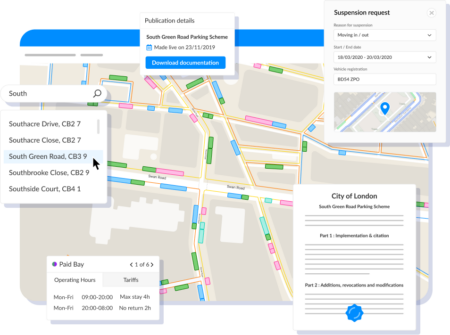The UK branch of Jenoptik’s Traffic Solutions division has completed the 100th deployment of its SPECS Average Speed Enforcement camera system on a notoriously dangerous route in Lancashire.
Jenoptik’s SPECS3 VECTOR cameras are now operational for enforcement on the B6232 Grane Road between Junction 5 of the M65 near Belthorn through to the A56 at Haslingden, covering 5 miles (8km) of rural road with a significant collision and casualty history. Highly conspicuous, passively safe columns supported by ‘Average Speed Check’ signs have been used throughout the route to ensure that drivers are aware that their average speed is being monitored.
In addition, unique VECTOR IR (Infrared) floodlighting provides clear night-time images, even where there is no visible street lighting. The Lancashire Road Safety Partnership (LRSP) gave the go ahead for the scheme last year and in January announced the chosen routes in a bid to reduce road casualties and collisions.
Under a single contract, eight individual routes are being addressed, covering over 28 miles (45km) of road, making this one of the most significant casualty reduction projects in the country.
The Partnership decided to deploy Jenoptik’s SPECS3 VECTOR average speed cameras, as safety and motorist compliance has consistently improved on a variety of road types across the UK where SPECS has been applied. The use of SPECS cameras has increased dramatically in the last three years, following the 2014 introduction of the flexible and cost effective new equipment.
SPECS systems have been in use since 2000, with more than 100 permanent sites and 400 temporary roadworks installations operated. Where SPECS has been installed, KSI reductions of >70% on average are seen along those routes.
Grane Road is the 100th UK permanent SPECS installation, but since the contract was awarded in January 2017, a further 20 new SPECS3 VECTOR sites have been awarded to Jenoptik, demonstrating its popularity with local authorities and highways agencies for addressing routes with collision and casualty problems. SPECS cameras positively influence driver behavior and ensure that motorists comply with the set speed limits on roads, resulting in a safer environment for all road users, smoother traffic flows and reduced emissions.
“In the last seven years, two families have lost loved ones in accidents on this road, 13 people have been seriously injured, and a further 105 people have received minor injuries,” noted Inspector Kevin Evans of the Lancashire Constabulary. “We have worked with the LRSP to make sure motorists slow down and reduce the risk of death and injury by ensuring the speed limit is effectively enforced.”




